Eating My Words (I.D. XIII)
In chapter 6, "Intelligent Design as a Theory of Information," Dembski has it that design equates to — is isomorphic with — "complex specified information" (see p. 160). Information, broadly defined, is that which (when it is received over any sort of communication channel) reduces uncertainty. Information can be measured in terms of how much uncertainty it removes. This measure is expressed as the quantity of bits (1's and 0's) needed to encode a "message" that reduces our uncertainty by that much.
Information theory and probability theory work hand in glove by virtue of their interconvertibility. The measure of information content, I, can be converted to (or from) a measure of probability, P. This is so because any particular message is one of some number of possible messages that could have been received. When you compare the number 1 to the total number of possible messages, you get a fraction which represents a probability.
"Complex specified information," or CSI, is information that is (unsurprisingly) both complex and specified. Take a social security number (see p. 101). It has enough complexity, by virtue of containing nine digits, that no one would simply guess your SSN in a million years. Meanwhile, it is specified, meaning that every living person's SSN is unique.
 By virtue of being specified, the SSN or any other piece of complex specified information functions sort of like the physical card in a "take a card, any card" magician's trick. Typcially, the trick goes like this. The magician has you "take a card, any card" from the deck and memorize it, show it to the audience (but not him), and replace it at random in the deck. Then he shuffles the deck, extracts a card from it, and says, "Is this your card?" And of course, it is.
By virtue of being specified, the SSN or any other piece of complex specified information functions sort of like the physical card in a "take a card, any card" magician's trick. Typcially, the trick goes like this. The magician has you "take a card, any card" from the deck and memorize it, show it to the audience (but not him), and replace it at random in the deck. Then he shuffles the deck, extracts a card from it, and says, "Is this your card?" And of course, it is.Suppose he said, simply, "Think of a card. Is it the ten of spades?" In this case, there's nothing to keep you honest. There's information (the card you actually thought of). It's reasonably complex, due to the relatively low probability (one in 52) that you and the magician would think of the same card by chance. (High complexity is basically synonymous with low probability.) But it's not specified. You could foil him by arbitrarily thinking of a different card if he happens to guess the one you originally thought of.
Apparently, the investigation of complex specified information is at the heart of much of science today (see p. 159). It's so important and so ubiquitous that German biophysicist Manfred Eigen considers explaining its origin to be his holy grail.
But, Dembski shows (pp. 160ff.), Eigen is ill-advised to look to computer-style algorithms and natural laws for CSI's origins. Algorithms and laws explain at most the flow of information, whether or not it is complex and specified. They are powerless to show where CSI came from in the first place.
Meanwhile, earlier on in his book (pp. 124-146), Dembski gives us reason to believe that everything in the world which has been designed by intelligent creatures such as us — unless it intentionally and successfully imitates blind chance — passes his "complexity-specification criterion," or (let me abbreviate it) the CSC, thereby assuring us of its intelligent design.
This criterion of design is, as he says, mathematically isomorphic with that by which CSI can be detected. Though the CSC is stated in terms of probabilities, not information content, it is basically the same thing as the criterion by which CSI is identified.
Notably, the CSC only comes into play in establishing design after it has been determined that the "event" in question is not "necessary" but "contingent." That means that other events could have happened in its stead, since there is no natural law or computer-style algorithm which made the actual event certain. This fact that designed phenomena must be contingent, not necessary, seems to represent the same notion as saying that laws/algorithms can't originate CSI.
So the $64,000 question is, does CSI come from God? Which is equivalent to asking, does the CSC "work" to establish a thing's "designedness" when the supposed designer is out-of-this-world?
As anyone who has read my earlier posts in this thread can see, my original inclination was to answer these questions in the negative. Though I am a believer in God, I thought a "yes" answer would "empty faith and hyperinflate reason." I thought Dembski's rationalistic approach was but a fancy glorification of ordinary commonsensical notions — after all, our common sense tells us that the natural world looks like it must have been designed, and so must have a designer — and that the kind of faith which moves mountains is allergic to mere common sense.
Now, I'm not so sure. Now I think I'll have to eat my words.
The thing which changed my mind was that I now can see how Dembski's worldview can be harmonized with Stuart Kauffman's self-organization paradigm. Kauffman says that discoverable laws of emergent self-organization may well explain such things as the origin of life on earth, along with other odd aspects of our planet's evolutionary history which purely Darwinistic natural selection has trouble accounting for. He says, basically, that self-organization is natural selection's "handmaiden."
But Dembski shows — and I buy this — that these laws of self-organization at most explain the flow of complex specified information, not its origin.
Now, flow is important. It undergirds emergence, a significant idea which I'm not sure Dembski takes sufficiently into account. Here's how Kauffman expresses the idea:
Some words or phrases are evocative, even provocative. So it is with the word emergent. Commonly, we express this idea with the sentence, The whole is greater than the sum of its parts. The sentence is provocative, for what extra can be in the whole that is not in the parts? I believe that life itself is an emergent phenomenon, but I mean nothing mystical by this. ... I shall [later] be at pains to give good reasons to believe that sufficiently complex mixes of chemicals can spontaneously crystallize into systems with the ability to collectively catalyze the network of chemical reactions by which the molecules themselves aer formed. Such collectively autocatalytic sets sustain themselves and reproduce. This is no less than what we call a living metabolism, the tangle of chemical reactions that power every one of our cells. Life, in this view, is an emergent phenomenon arising as the molecular diversity of a prebiotic chemical system increases beyond a threshold of complexity. (At Home in the Universe, p. 24)
The laws of self-organization and complexity which Kauffman sketches are closely akin to the computer algorithms which he uses to model them. By means of these laws/algorithms, emergent phenomena such as life itself can (he says, and I believe him) be forecast and explained. But Dembski shows that these laws by themselves cannot account for the existence of the complex specified information whose flow they channel and chart. Nor can they show why any particular piece of CSI, in its complexity and specificity, is isomorphic with scientifc indicators of design, such that any piece of CSI might as well be called a "piece of design."
All that by itself composes a powerful argument in favor of intelligent design. But what really seals the deal for me is that I consider our human free will — just as with our intelligence and our concsious self-awareness — to be an emergent phenomenon.
How ironic, in a way! Laws and algorithms, as Dembski shows, are vessels of necessity, not contingency. Yet, when applied to what I'm now taking the liberty to characterize as flowing "granules" of design — i.e., messages which are "kernels" of CSI — they arguably produce a freedom in the world that is more akin to contingency. That freedom which we call "free will" emerges from lawful, necessary, deterministic behavior — what a surprise!
It is the likelihood that this paradox is actually so which finally convinces me that Dembski's intelligent design theory is also so, and that it does not really contradict Kauffman's self-organization ideas one bit.
For if freedom can emerge through the action of laws or algorithms, one of my main objections to Dembski goes away. I naively thought that "design" was something that had to be deterministic in its results. Before, accordingly, I couldn't see how Dembski's intelligent design hypothesis could possibly account for the free will I suppose we humans possess. Now, with the help of Kauffman's explanations of emergent phenomena, I can.
That's why I'm ruefully eating my former words against Dembski and intelligent design.






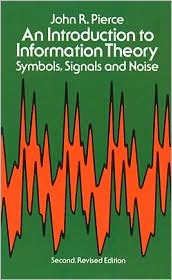

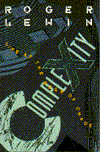

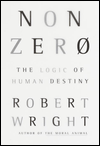

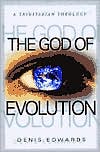

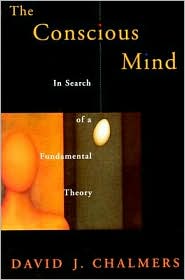
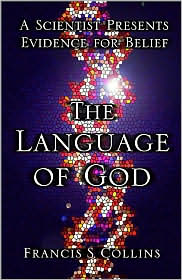


0 Comments:
Post a Comment
<< Home